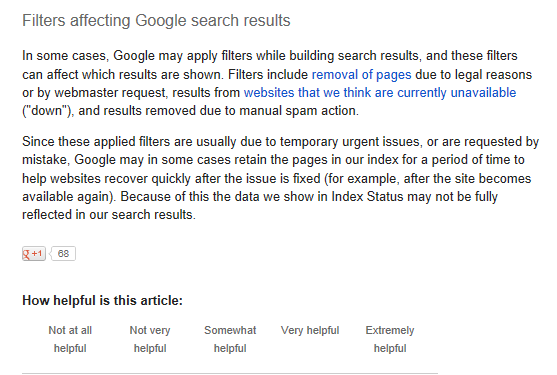Google Index VS Google Search Results

The way Google figures out search rankings is pretty darn complex. It uses hundreds, maybe even thousands, of different signals to decide where web pages should sit in the search results. These factors generally fall into buckets like how relevant the page is, its quality, how fresh the info is, the site’s authority, and the user experience it offers.
So, how does Google’s index relate to the actual search results we see? And what’s the go with all the filters Google uses – when do they actually step in?
Understanding the Google Index vs. Google Search Results
Let’s break down the difference between the Google index and the organic search results you get.
What is the Google Index?
Think of the Google Index as a massive digital library. It holds info on all the web pages Google has found and thinks are good enough to potentially show in search results. Google uses automated programs, often called web crawlers or spiders (like Googlebot), to constantly explore the web, find new pages, and update info on existing ones. These crawlers follow links from page to page, adding new finds to the index.
Like a library catalogue, the index organises pages based on their content, keywords, and other bits and pieces so Google can quickly find them when someone searches. Whether a page gets into the index depends on things like its quality, relevance, and if it follows Google’s guidelines (Search Essentials).
What are Google Search Results?
On the other hand, Google Search Results are what you actually see on your screen after you type something into Google and hit ‘Search’. When you search, Google’s algorithms dive into the index to find the best matches for your query. These results are then ranked based on heaps of factors – relevance, quality, authority, user experience, and more.
The results page usually shows a mix of organic (unpaid) results and paid ads. The organic ones are ranked based on how relevant and high-quality Google reckons they are.
Basically: the Index is the storage shed of potential results, and the Search Results are the curated list pulled from that shed when you ask a question.
The Big Question: When Do Google’s Ranking Filters Kick In?
Right, here’s the tricky bit. When do Google’s filters actually start sorting and prioritising your website’s ranking?
- Before your site even shows up in results?
- Once your site makes it into the index?
- Or after it’s already being displayed?
Turns out, it’s a bit of all three.
Filter Stage 1: Before Content Hits Search Results
Some filters have to work *before* results are shown, mainly to stop nasty stuff from getting through. These filters target really obvious objectionable content – think violent, racist, or pornographic material. They act fast to block anything that clearly violates Google’s content policies. Some folks might call these initial checks different names, but the goal is to keep the search results clean from the worst kinds of harmful content.
Filter Stage 2: Post-Indexing, Pre-Ranking Assessment
Once Google has indexed your site, a whole lot more filters get involved. These are complex algorithms that check everything – your content, images, website speed, and potentially over 200 other factors – to figure out the best way to rank and show your stuff. Every single page gets looked at for relevance. Sometimes, an inner page might even outrank your homepage for certain searches, but your homepage still plays a massive role in the site’s overall success (more on that in a future yarn!).
Filter Stage 3: Real-Time Evaluation in Search Results
The last layer of filtering happens basically in real-time, after the initial ranking. This is where user experience really comes into play. How users interact with your site in the search results can influence its position over time. This is super important for your site’s long-term success. As mentioned, we’ll dive deeper into user experience and its direct impact on rank in another post soon.
Wrapping Up (For Now)
So, Google’s filters aren’t just a single checkpoint; they work at multiple stages – before results, after indexing, and even while results are live. Understanding this helps paint a clearer picture of the journey from web page creation to ranking in Google Search. Stay tuned for more deep dives into homepage influence and user experience!